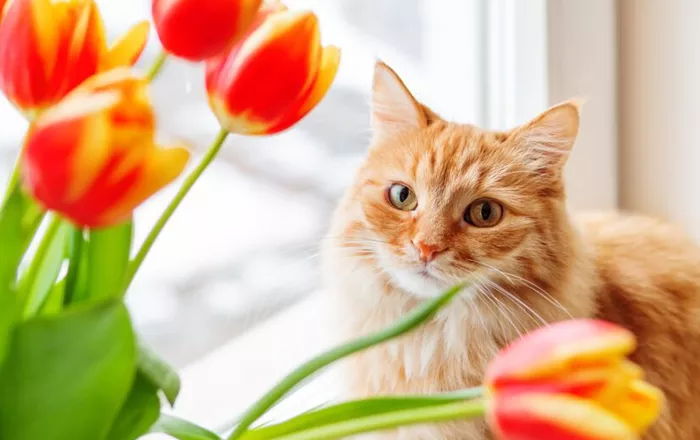As spring arrives, gardens and homes are filled with vibrant flowers, but some of these beautiful blooms can pose a serious threat to pets. Before bringing new plants into your home or garden, it’s crucial to ensure they won’t harm your furry friends.
Tyna Riter, Humane Education Coordinator at Fort Wayne Animal Care and Control, emphasizes the importance of monitoring pets around plants. “Puppies and kittens are naturally curious and tend to chew on everything,” Riter explained. “It’s essential to watch them closely to prevent accidental ingestion of toxic plants.”
Flowers that grow from bulbs, such as tulips and daffodils, are particularly hazardous if ingested, especially the bulbs themselves. According to the ASPCA, other plants that can cause severe harm to pets include Easter lilies, Oriental lily hybrids, Stargazer lilies, Japanese lilies, Tiger lilies, Daylilies, Sago palms, oleander, and Autumn crocus. These plants can lead to life-threatening conditions if consumed.
If you suspect your pet has ingested something toxic, look for symptoms like excessive drooling, vomiting, or unusual behavior. “If your pet is acting strangely, bring it to a safe place and try to identify what it ate,” Riter advised. “Take a picture of the plant and contact your veterinarian immediately.”
Fortunately, there are many pet-friendly plants you can enjoy without worrying about your pets’ safety. These include wax flowers, roses, freesia, statice, zinnias, gerber daisies, sunflowers, asters, snapdragons, orchids, friendship plants, Boston ferns, Easter cacti, zebra haworthia, African violets, hens and chicks, spider plants, and petunias.
For emergency assistance, the ASPCA operates a 24-hour Animal Poison Control Center hotline at (888) 426-4435. By being aware of which plants are safe and which are toxic, you can help ensure a safe and happy environment for both your pets and your garden.


